Pathology: An Overview
Pathology is the study of diseases, their causes, processes, development, and consequences. It involves the examination of tissues, organs, bodily fluids, and autopsies to understand the nature of diseases and their impact on the body. Pathologists play a crucial role in diagnosing diseases, understanding their progression, and developing treatment plans.
Key Concepts in Pathology
- Disease Etiology: This refers to the study of the causes of diseases, including genetic, environmental, and lifestyle factors that contribute to the development of various conditions.
- Pathogenesis: Pathologists study the mechanisms by which diseases develop and progress within the body, including the cellular and molecular changes that occur.
- Morphological Changes: Pathology involves the examination of structural and functional changes in tissues and organs affected by diseases, which helps in identifying and characterizing different conditions.
- Diagnostic Techniques: Pathologists utilize various techniques such as histology, cytology, immunohistochemistry, and molecular testing to diagnose diseases and monitor their progression.
- Forensic Pathology: This area of pathology deals with the investigation of sudden or unexpected deaths, often involving autopsies to determine the cause and manner of death.
Study Guide
If you're studying pathology, here are some key topics to focus on:
- Understand the basic concepts of disease etiology and the factors that contribute to the development of various diseases.
- Learn about the different types of pathological changes that occur in tissues and organs, and how they are linked to specific diseases.
- Explore the diagnostic techniques used in pathology, including histological and molecular methods for identifying and characterizing diseases.
- Gain an understanding of the role of pathologists in clinical diagnosis, treatment planning, and research.
- Consider the ethical and legal aspects of forensic pathology and its role in the investigation of deaths.
By mastering these key concepts and topics, you'll develop a strong foundation in pathology and be well-prepared to explore more advanced areas within the field.
.◂Science Worksheets and Study Guides Seventh Grade. Photosynthesis and Respiration
Worksheet/Answer key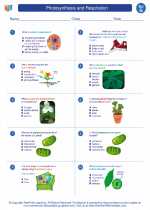 Photosynthesis and Respiration
Photosynthesis and Respiration  Worksheet/Answer key
Worksheet/Answer key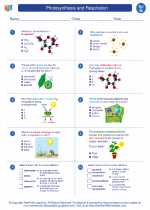 Photosynthesis and Respiration
Photosynthesis and Respiration  Worksheet/Answer key
Worksheet/Answer key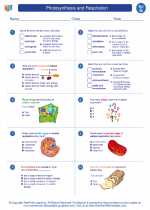 Photosynthesis and Respiration
Photosynthesis and Respiration  Vocabulary/Answer key
Vocabulary/Answer key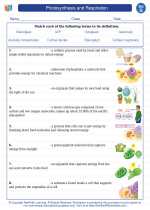 Photosynthesis and Respiration
Photosynthesis and Respiration  Vocabulary/Answer key
Vocabulary/Answer key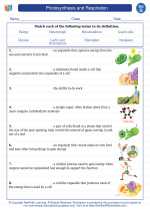 Photosynthesis and Respiration
Photosynthesis and Respiration  Vocabulary/Answer key
Vocabulary/Answer key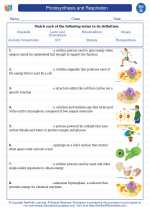 Photosynthesis and Respiration
Photosynthesis and Respiration 

 Worksheet/Answer key
Worksheet/Answer key
 Worksheet/Answer key
Worksheet/Answer key
 Vocabulary/Answer key
Vocabulary/Answer key
 Vocabulary/Answer key
Vocabulary/Answer key
 Vocabulary/Answer key
Vocabulary/Answer key

The resources above cover the following skills:
LIFE SCIENCE
Ecosystems: Interactions, Energy, and Dynamics
Examine the cycling of matter between abiotic and biotic parts of ecosystems to explain the flow of energy and the conservation of matter.
Generate a scientific explanation based on evidence for the role of photosynthesis and cellular respiration in the cycling of matter and flow of energy into and out of organisms.